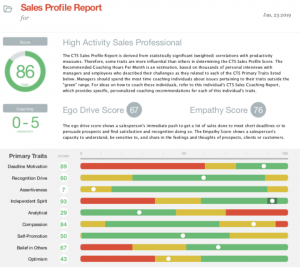 Yesterday we turned over big rocks on my farm. As they flipped, I watched my grandsons react to the worms and other creatures found in the dirt behind them. As I predicted, Max grabbed the creepy crawlers while Weston watched from behind his father’s leg where he had retreated.
Yesterday we turned over big rocks on my farm. As they flipped, I watched my grandsons react to the worms and other creatures found in the dirt behind them. As I predicted, Max grabbed the creepy crawlers while Weston watched from behind his father’s leg where he had retreated.
It was easy to decide who would be the first to grab the slimy worms and save them in a cup to feed the fish in the pond. Max the adventurer, the risk taker and the more directive one. Weston, the thinker, held back to analyze what happened to his brother and the new animals.
……………
Our brains are wired differently. Because of this wiring, some of us are better at accounting than sales, better at chess than listening to the pain of someone suffering in a hospital. Some of us have the risk-taking characteristics of entrepreneurs and others of us are better at organizing files and doing spreadsheets.
If we observe our children and watch their strengths, not their weaknesses, we can see predispositions to certain types of behaviors. Do we see them being social? Do we see them organizing? Do we see them task-focused? Do we see verbal skills?
My bride is diplomatic and does not like chaos. I AM chaos! My oldest son from an early age could put a 400 piece space ship together by just looking at the finished picture. I needed the directions and I was still lost.
Which brings us to sales.
The following skills describe the competencies of high-activity sales professionals:
- Find prospects
- Maintain high-activity
- Handle rejection
- Set appointments
- Sell face-to-face
The brains of the best are wired with a sense of urgency, social ability, assertiveness, an independent spirit, enough compassion to listen and to remain task-focused and a big-picture focus.
The best do not move at a slow pace or seek to be alone. They do not over analyze or have a pessimistic outlook. They seek to control the sales process and want to reach results at the end of the month. They are deadline-oriented in reaching their goals.
With the answers to a valid set of questions which have been tested against high, moderate and low performing sales reps and their sales levels, we can predict if someone matches up with the typical profile of a best performing salesperson.
By looking at the scores, we can predict their stress points and a low, moderate or high match to that of high performers.
You can use a validated assessment to predict if someone “can sell at the best level.” It can add 20-40% of the information you need to make a good choice. As you continue your recruitment system, ask structured questions to uncover character traits or conscientiousness and give a math/verbal test to understand their learning style, you can further increase the predictability of finding someone who can sell at the right level and in the right way.
These days, to help out, I’m sitting down with the daughters and sons of my friends when they reach their junior year in high school. I have given them a personality test and we go over the results while I ask questions about their likes, dislikes and dreams for a career. Many of them along with their parents have told me that this consultation was one of the most impactful times in their life.
You see, just like Max and Weston,
we are bent early in life toward the things our brains are fired up to do. We are prone to be engineers or nurses or salespeople.
We show early evidence of athletic ability or directing those around us. As Weston leaned away from the risk in front of him, we lean into what we’re made to do, and if we study others, if we listen to them, if we think about what great salespeople do, we can develop scientific approaches that predict with a high accuracy.
That’s what it means to use a “validated assessment.” That’s what it means to use “structured questions” in an interview. That’s what it means to look for character, learning ability and personality traits that match up with the high-activity salesperson who sell at the best levels for you.
